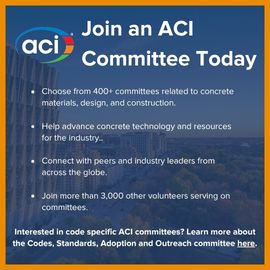
IAS Field Evaluation Body Accreditation program
 The U.S. Fire Administration’s (USFA) July 2018 report, “Nonresidential Building Fires (2014–2016)” identifies the following categories: cooking, heating, equipment malfunctions, electrical malfunctions, appliances, equipment misoperation/failure and other equipment as some of the causes of commercial building fires. To improve electrical safety in non-residential buildings, and therefore decrease the number of fires, the International Accreditation Service (IAS) created the Field Evaluation Body (FEB) Accreditation program, which accredits companies and agencies who provide onsite evaluation of electrical equipment to ensure that the products comply with applicable standards.
The U.S. Fire Administration’s (USFA) July 2018 report, “Nonresidential Building Fires (2014–2016)” identifies the following categories: cooking, heating, equipment malfunctions, electrical malfunctions, appliances, equipment misoperation/failure and other equipment as some of the causes of commercial building fires. To improve electrical safety in non-residential buildings, and therefore decrease the number of fires, the International Accreditation Service (IAS) created the Field Evaluation Body (FEB) Accreditation program, which accredits companies and agencies who provide onsite evaluation of electrical equipment to ensure that the products comply with applicable standards.
Some of the types of electrical equipment that are covered by the program include power distribution, industrial control and utilization, commercial utilization, and commercial appliances. While the Authority Having Jurisdiction (AHJ) of a city can rely on electrical inspectors to evaluate any electrical issues within a building, the FEB program evaluates the safety of electrical products themselves. A field evaluation by an accredited FEB is important when electrical equipment 1) has been installed that has not been listed by an approved certification agency or has been modified after installation; 2) has been repaired, reconditioned, refurbished or re-manufactured such that its features or design have been changed; or 3) has a problem, as identified by the AHJ, that needs further investigation.
The IAS program is a free resource for building officials and other AHJs. It verifies the competency of the agencies and companies that perform field evaluations for electrical equipment. The accreditation granted by IAS is based on IAS Accreditation Criteria for Field Evaluation of Electrical Equipment (AC354), which was created in accordance with the following standards: ISO/IEC 17020; NFPA 790, Standard for Competency of Third Party Evaluation Bodies (FEB); and NFPA 791, Recommended Practice and Procedures for Unlabeled Equipment Evaluation.
Visit IAS online to confirm if a company or agency has received accreditation as an IAS FEB and to view certificates of accreditation from IAS. The field services provided by FEBs are paid for by one of the involved parties, typically the manufacturer or the installer.
If your building department does not yet have a system for determining the safety of unlisted electrical products through an accredited organization, IAS recommends that formal regulations are put in place to improve electrical safety in nonresidential buildings, thereby decreasing the risk of fire.
Authorities Having Jurisdiction that use IAS-accredited FEBs gain the confidence that electrical products in use within a building are inspected by qualified professionals and meet all applicable standards. The program offers full transparency through code official oversight by the IAS Accreditation Committee.








